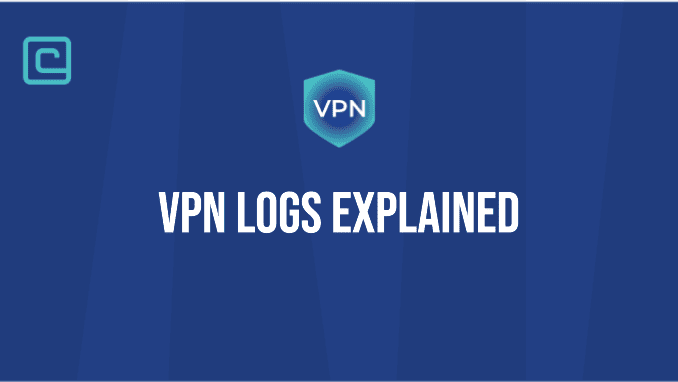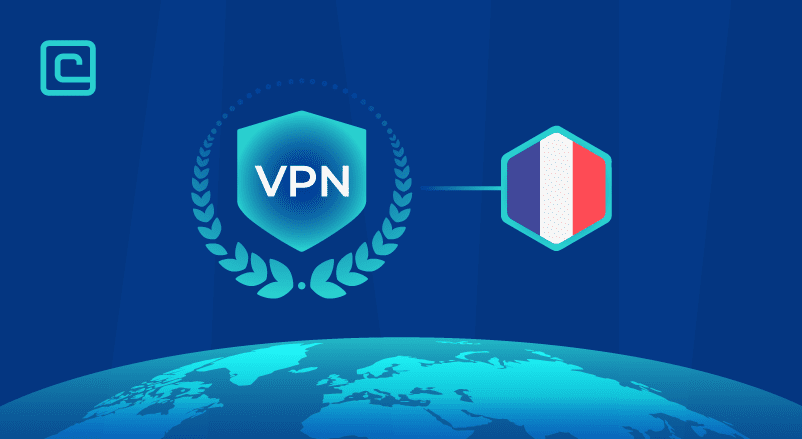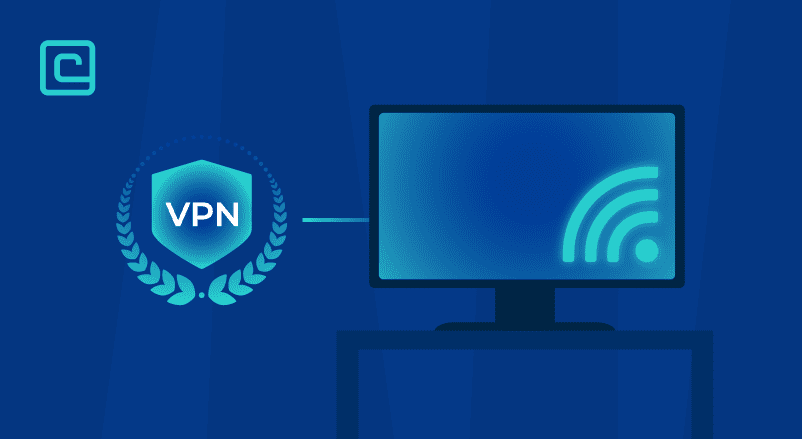VPN Logs Explained: Everything You Need to Know in 2024

Privacy and security are paramount reasons why Internet users use tools like VPNs. VPNs have gained popularity due to their ability to protect online privacy by encrypting internet traffic and masking users’ IP addresses. However, understanding VPN logging practices is essential for making informed decisions about the level of privacy offered by different providers.
This comprehensive guide provides insights into VPN logs in 2024, covering topics such as the types of data VPNs may log, the implications for user privacy, and the importance of choosing VPN services with strict no-logs policies. Read on to learn everything about the intricacies of VPN logging!
What Information Do VPNs Log?
In terms of the types of logs providers can keep on their users, there are three main categories. These are:
Connection Logs
Most users use the term “connection logs” when referring to a VPN’s logging policy. Connection logs typically fall under two categories. These can be server-level logs and user-level logs.
Server-level connection logs incorporate total server bandwidth usage. These logs are used to optimize network performance and ensure that the server network runs smoothly.
There’s nothing wrong with VPN companies keeping such connection logs, as long as they employ proper tracking and storage practices.
On the other hand, user-level connection logs are collected at the user IP address level. More specifically, these focus on your real, originating IP address. This is where connection logs become a problematic topic.
The purpose of using a Virtual Private Network is to stay as private as possible and keep your source IP address safe. But, if a VPN keeps the originating IP address of a specific user, the user’s privacy can be in jeopardy.
Activity / Usage Logs
Moving on to a more serious type of traffic logs, keeping activity logs is a very invasive practice that negates any reason for using a VPN. Activity logs can contain a long list of usage data, including browsing history and online activity, DNS requests, and more.
Any VPN service that logs your browsing activity or online activity, in general, is best avoided. There are more than enough trusted no-logs VPN service providers, so you should never compromise on activity logs.
Aggregated Logs
Although this term is not widely known in the industry, some of the best VPN services in the market collect aggregated logs.
These types of traffic logs include data on the sites that the users visit, total VPN usage, and even the date and time users connect to a server location.
However, what makes aggregated logs different from the two above types of logs is that they typically involve anonymizing or stripping away personally identifiable information from individual user logs.
These anonymized traffic logs are put into the database without any identifying info on a specific IP address or user. This ensures that the data being analyzed does not compromise user privacy.
Test Your VPN Knowledge – Take A Quiz!
Why Do Some VPN Providers Keep Logs?
Understanding the types of data logs your VPN provider can keep on you, it’s also important to know why VPNs log sensitive data in the first place. There are several reasons for this. Here are the most common reasons why a VPN company keeps logs:
Device and Bandwidth Limits
Most VPNs, even some of the best ones in the market, limit how many simultaneous connections you can have per subscription. This is arguably the most common reason why VPN logs exist.
That said, this is a discussion on its own, as only your VPN service can provide an accurate answer to this.
For instance, some reputable VPN providers, like NordVPN, use specific algorithms to enforce device limits while still keeping temporary and minimal connection logs.
Regarding bandwidth limits, these are generally prevalent among free VPN services. If a free VPN service claims to keep zero usage logs but has bandwidth limits, you can be sure that they aren’t fully transparent when it comes to the former.
Virtual Private Networks
Virtual VPN servers are popular among many VPN services, as they are much more affordable than standard, bare-metal VPN servers. However, from the context of this page, VPN logs, and privacy protection, virtual private servers come with an undeniable drawback.
This is because the server host of these virtual rental servers is likely keeping traffic logs, even if the VPN has a no-logs policy. In other words, the local rental servers seized in the data center will most likely share all of the VPN log data with the local authorities, and the VPN provider can’t do anything about it.
Legal Obligations and Agencies Requiring Them to Log
Spying agencies and national security organizations have been involved in surveillance activities and have pressured companies, including VPN providers, to log user data.
These agencies often seek access to information for intelligence gathering or law enforcement purposes.
This practice can be problematic, especially if the VPN provider operates in a jurisdiction with legal obligations or data retention laws that require them to keep logs for a certain period.
National spying agencies can obtain secret court orders that prevent companies from disclosing any requests for user data or surveillance activities.
This can make it difficult for VPN providers to communicate openly about the extent of their cooperation with such agencies.
Maintaining Service Quality and Preventing Abuse
Lastly, a VPN service provider might keep logs for other purposes, primarily maintenance ones. Logging certain data can assist VPN providers in identifying and resolving technical issues and optimizing performance.
When users encounter connectivity problems or other network-related issues, logged data can be valuable for diagnosing and troubleshooting.
In the same breath, VPN providers may retain certain data to prevent abuse of their services. This includes tracking VPN IP addresses and VPN data usage to identify and block suspicious or malicious activities, such as spamming, hacking attempts, or other forms of misuse.
Related VPN logging articles:
What Kind of Logging Is OK?
Even some of the most reliable VPN service providers might keep connection logs or measure VPN traffic through various tools. With that in mind, having a logging policy that collects certain data isn’t inherently wrong. This includes information such as:
- Aggregated bandwidth data
- Aggregated connection logs
- VPN server location data
- IP address subnet
Nevertheless, it’s entirely understandable why some users wouldn’t like seeing mentions on the VPN’s privacy policy page that this type of information is collected. If you want a true no-logs VPN, you can still find many trusted options.

| 🌐 Website: | nordvpn.com |
| 🏢 Headquarters: | Panama |
| 📍Servers/Countries: | 5800+ servers in 60 countries |
| ₿ Accepts Cryptocurrency | Yes |
| 💸 Deals & Coupons | Get 68% off + 3 months extra |
What Type of Logs Your VPN Provider Shouldn’t Keep?
Not all data that a VPN claims to connect is harmful to your privacy. But, as VPNs are primarily privacy tools, there’s some information that they should never collect. This includes:
- User IP addresses
- User’s browsing history and online activity
- Individual timestamp and usage of a VPN session
- Assigned VPN IP address
Why VPN Logging Policies Can Be Problematic
As zero-log policies are becoming an imperative most online users look for, VPN services have realized that this term serves great as an advertising hook, more than anything else.
This has brought on a litany of inherent issues concerning data logging policies. Here are just some of the most significant ones:
False Advertising
If you’re not a seasoned VPN expert, it’s almost impossible to know for sure whether the VPN’s logging policy is what the service says it is. Many VPNs do this deliberately through false advertising and intentional vagueness.
The ambiguity often creates a sense of great privacy among novice users, even if the VPN doesn’t really match up to its claims. This is especially true with free VPNs, which operate on the fringe of legality and often label themselves by their own standards.
What’s more, even for industry experts, it’s very hard to fully verify a service’s policy. The most reliable way to do so is through independent audits.
Fortunately, most of the top VPNs have passed audits that are publicly available, and anyone can browse through them.
Lack of Detail
Another common tactic among less popular VPNs is not disclosing a lot of details about how the service works. For example, many services simply state that they don’t collect any data. But, their privacy policies are short and don’t go into the details.
The problem with this is that a beginner user will have a tough time determining whether such a service is trustworthy. Still, for a keen eye, this lack of detail and intentional lack of transparency are telltale signs that the service is trying to hide something.
Jurisdictional Concerns
Different countries have varying laws regarding data retention and privacy. If a VPN provider is based in a jurisdiction with weak privacy regulations or is subject to data retention laws, user data could be at risk.
Government surveillance programs, intelligence agencies, or other legal entities may demand access to VPN user data. In some cases, VPN providers may be compelled to comply with these requests, compromising user privacy.
Even if a VPN provider claims to have a strict no-logs policy, they may still be subject to government orders or data-sharing agreements that could compromise user data privacy.
How To Ensure You’re Free From VPN Logging
If you want to maximize your online privacy and keep your IP address, web traffic, and other information private, there are some steps you can take to bulk up your data protection. Here are a few tips that will help you bring your online privacy to the next level:
Use a Proven No-Logs VPN – NordVPN
When you choose a VPN service that follows a strict no-logs policy, it ensures that your browsing history, internet activities, and personally identifiable information are not recorded or stored.
A VPN that doesn’t keep any connection or traffic logs protects your privacy and prevents the possibility of your data being accessed or compromised. This brings great peace of mind knowing that your online presence remains confidential and anonymous, as there is no information available to be linked back to you.
Use Tor With a VPN Service
By combining a VPN with Tor, you can benefit from the encryption and IP address masking of the VPN, along with the anonymity and censorship circumvention capabilities of the Tor network. This setup provides an additional layer of privacy and security.
Using a VPN with Tor can be a powerful approach for those seeking enhanced privacy and anonymity, but it’s important to understand the limitations and use it appropriately for your specific needs. Namely, you might encounter slower speeds.
Combine Multiple VPN Services
If you really want to lock up your IP address and confuse anyone trying to snoop on you, you can combine two VPN services at the same time. The most straightforward way to do so is to set up one VPN on your router and install the other one on your device.
An even better alternative is to pick a VPN that allows you to connect to multiple IP addresses simultaneously. For example, NordVPN’s Double VPN feature enables you to route your traffic through two VPN server locations.
Pick a VPN in a Privacy-Friendly Jurisdiction
Selecting an offshore VPN in a privacy-friendly jurisdiction is crucial for robust online privacy. Privacy-friendly jurisdictions like Panama (NordVPN) and the British Virgin Islands (ExpressVPN) have strong privacy laws, limited government surveillance, and data protection standards.
By choosing a VPN in such a jurisdiction, you benefit from legal protections, reduced data retention risks, and the ability to seek legal recourse for privacy violations.
When “No Logs” Claims Ring True
Any VPN can claim that it doesn’t collect any activity or connection logs on its users. However, what matters is that the service upholds its word when push comes to shove.
With that in mind, let’s wind down this page with some positive examples. In the past, there have been VPNs that were put on the spot, either by hackers or local authorities.
Perhaps the best-known example of this occurred in 2017 when Turkish investigators seized ExpressVPN’s server. However, this confiscation didn’t yield any results. According to official statements, ExpressVPN never had any connection logs or specific user IP addresses the Turkish investigators hoped for.
Another, albeit less famous example, happened one year earlier than the ExpressVPN incident. In 2016, the Dutch authorities seized Perfect Privacy’s servers but came out empty-handed.
Considering these public examples of server captures, it’s encouraging to see that the most trusted no-log VPNs do stay true to their claims. By picking a vetter and proven VPN, you can truly get a completely private online experience.
VPN Logging – Summing It Up
VPN logging plays a significant role in user privacy and data protection. It is crucial for users to understand a VPN provider’s logging practices and choose services that align with their privacy requirements.
Transparency, jurisdiction, encryption, and robust privacy features like kill switches and DNS leak protection are key considerations. By making informed choices, users can maximize their online privacy and enjoy a secure VPN experience.
With that in mind, no matter what different VPNs claim, it’s always best to do a little extra research. Going through the VPN’s privacy policy page and the remarks of other online users is a great way to do so.
Moreover, reading our expert reviews is even better, as we do the research for you. If you’re interested in learning more about the best VPNs in the market, we recommend going through our top VPN picks in 2024.
VPN Logs FAQs
What are VPN logs?
VPN logs refer to the records or data that VPN service providers may keep about user activities or connections. These logs can include various types of connection data, such as connection timestamps, IP addresses, the sites you visit, and much more.
Where are VPN logs stored?
VPN logs are typically stored by the VPN on the servers. These logs contain data about user activities and connections within the VPN network. As a user, you do not have direct access to the VPN logs unless the service offers specific log viewing capabilities.
Do VPN services keep logs?
VPNs can vary in their logging practices. While some VPNs follow a strict no-logs policy and do not retain any identifiable data or user activities, others may keep certain logs. It’s key to review the specific logging policy of a VPN before signing up.
What are the different types of VPN logs?
You can classify VPN connection data into many different categories. That said, it’s widely accepted that there are three types of VPN logs a service can keep. These are connection logs, activity logs, and aggregated logs.
Cybersecurity and VPN researcher

